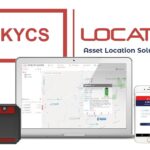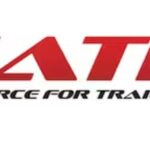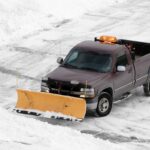How To Lease Equipment For My Business
Equipment leasing and Equipment Financing is used by many businesses to acquire both new and used equipment they need to run their day-to-day operations. This is largely due to the numerous benefits and easy process that equipment leasing offers when compared to other options such as cash purchases and bank loans. If you have decided to lease your next piece of equipment for your business, here is what you need to know.
Jocova Financial, October 24, 2022
Equipment leasing and Equipment Financing is used by many businesses to acquire both new and used equipment they need to run their day-to-day operations. This is largely due to the numerous benefits and easy process that equipment leasing offers when compared to other options such as cash purchases and bank loans. If you have decided to lease your next piece of equipment for your business, here is what you need to know.
Determine What You Need Equipment
Having the right equipment for your business for the right reasons is critical and will have an impact to the overall success of your business. When you are evaluating your business and equipment needs, it is important to think about equipment from a big picture; how will the equipment be used today, tomorrow, and in the future of the business. Here is a list of the most common reasons why businesses acquire equipment:
- Starting a business
- Growth
- Current equipment is obsolete and not efficient
- Breakdowns
- You have outgrown the equipment
- Take advantage of new opportunities within the market
Choosing Equipment Dealers and Suppliers
Are you buying from a reputable and established equipment dealer who is selling quality equipment? This is important as the dealer knows the industry and can act as a consultant with respect to getting you in the right piece of equipment for your business and the jobs you get involved in. Service and warranty are also concerns when buying equipment as you cannot afford downtime in your business; buying from a dealer who supports their equipment, both new and used is important.
From a lending perspective, lenders are typically more comfortable with dealer sales as they know there is layer of support that exists for the equipment and you the business owner (i.e. warranty, service, etc.). Purchasing from a dealer also eliminates many equipment condition, title or fraud issues that otherwise may come into play with private sale used equipment.
Equipment Financing Application Process
All new equipment financing or leasing requests start with a credit application. When completing the application, be as specific and accurate as possible. For example, when asked what industry you are in, don’t just use a generic term for your industry. Instead say something that better explains what you do such as landscape design and construction, carpenter, cosmetic dentistry, property maintenance, physiotherapist or yoga instructor, etc. You will also want to make sure not to leave any relevant fields on the application blank. Surprisingly, this happens more often than you would think and makes up a large portion of refusals or time delays in processing applications.
It is also important on the application to accurately detail the equipment and supplier as best as possible. If the lender knows or can easily research the equipment dealer selling the equipment, it provides a level of comfort. For the equipment, it helps the lender understand the equipment you are requesting and relate it to your business activities to ensure it is historically consistent with similar businesses. If the equipment is used, it is also important to outline the year, make, model, and hours to help the lender evaluate accordingly.
Know Your Business Finances
Equipment financing offers substantially lower monthly payments than an outright purchase, but you still need to factor the costs into your monthly cash flow. Understanding your current or projected cash flow is critical to any business. Once you establish a budget for a monthly payment, use that to find equipment that matches not only the specs needed to complete the jobs you will be using it for but also your monthly payment criteria. Sometimes it will make more sense for you and your business to finance a higher quality item at a higher price. Other times, like for people just starting out, it may make more sense to lease a less expensive item so they can keep a good amount of cash flow for unexpected costs. One benefit of equipment financing is that the term is flexible so you can plan for growth with a short lease and then upgrade your equipment when you’re ready. You can also customize the structure of the financing to match your cash flow budget including seasonal business variations.
Type of Equipment Lease Contract Structures
Determine what type of equipment lease is going to suit your business needs. An equipment lease agreement is a usage agreement (rental) between an equipment owner known as the lessor (Funder) and the user of that equipment, known as the lessee (business entity). The lessee pays a periodic fee or rental payment, usually monthly, to the lessor for the use of the equipment. At the end of the agreed upon term, the lessee is responsible for executing a purchase option to gain title and ownership of that equipment.
Typical purchase options range from $1.00 to $750.00 OR are based off of a percentage of the original equipment cost which is typically between 5% and 25%. The standard purchase options in small ticket leasing are $10.00 for a standard capital lease and 10% for a stretch lease.
Furthermore, leases generally take the form of written contracts that range from 24 to 72 months and have specific terms & conditions laid out which detail the obligations and duties of the lessee. Some of the terms & conditions of note include the repayment term, responsibilities & restrictions, insurance requirements, buy-out & early purchase option and, any additional fees & charges that may be applicable. Be sure you understand your contract and ask questions of your equipment leasing company to clarify before completing any paperwork.
Benefits of Equipment Financing & Equipment Leasing
The key benefits for most small businesses for equipment financing include getting equipment without a large cash outlay, simple monthly payments, and equipment ownership at the end of the term. Here is the complete list of equipment leasing benefits most businesses will realize:
- Low monthly payments
- Improved cash flow management
- Pay for the equipment as you profit from its use
- Keeps your cash in the bank
- Overcomes budget limitations
- Avoids obsolete equipment
- Ability to upgrade or trade-in equipment at any time within the term
- Fixed rate over the term
Next Step to Getting Approved & Equipment
Jocova Financial is a recognized leader in providing equipment financing and leasing solutions to small businesses throughout Canada. We work directly with small and medium-sized businesses to help them secure the equipment and software they need with the best equipment financing options.
Have questions about equipment financing and equipment leasing – click here
Checkout – Why Use Equipment Financing; Benefits
Other Posts

Equipment Financing for Small Business Owners
Read More
How Market Conditions Shape Equipment Leasing Rates
Read More
Factors Influencing Lease and Equipment Financing Rates for Manufacturing Equipment
Read More
Exploration of How Interest Rate Changes Shape Business Equipment Financing For Small Business
Read More
The Crucial Role of Financial Wellness for Small Businesses
Read More
Maximize Your Savings: New Tax Deduction Allows 100% Write-Off for Equipment Purchases in 2023!
Read More
Protect Your Equipment; Theft Protection
Read More
INDUSTRY NEWS: NATDA Partners with Jocova Financial to Enhance Trailer Financing Opportunities in Canada
Read More




